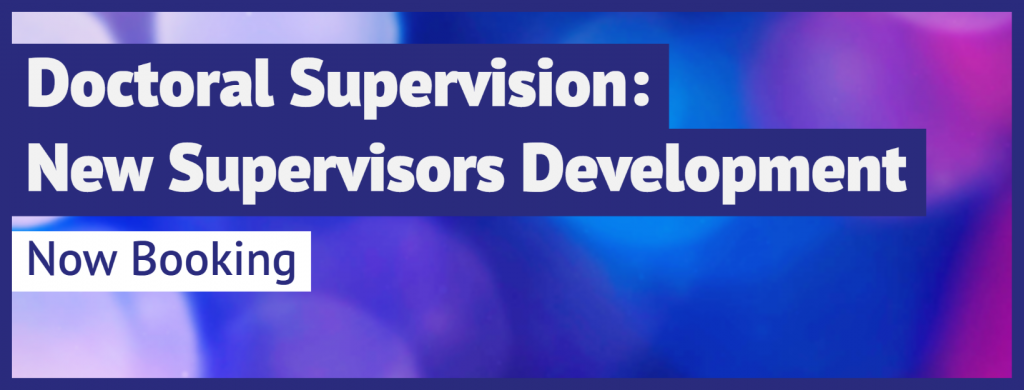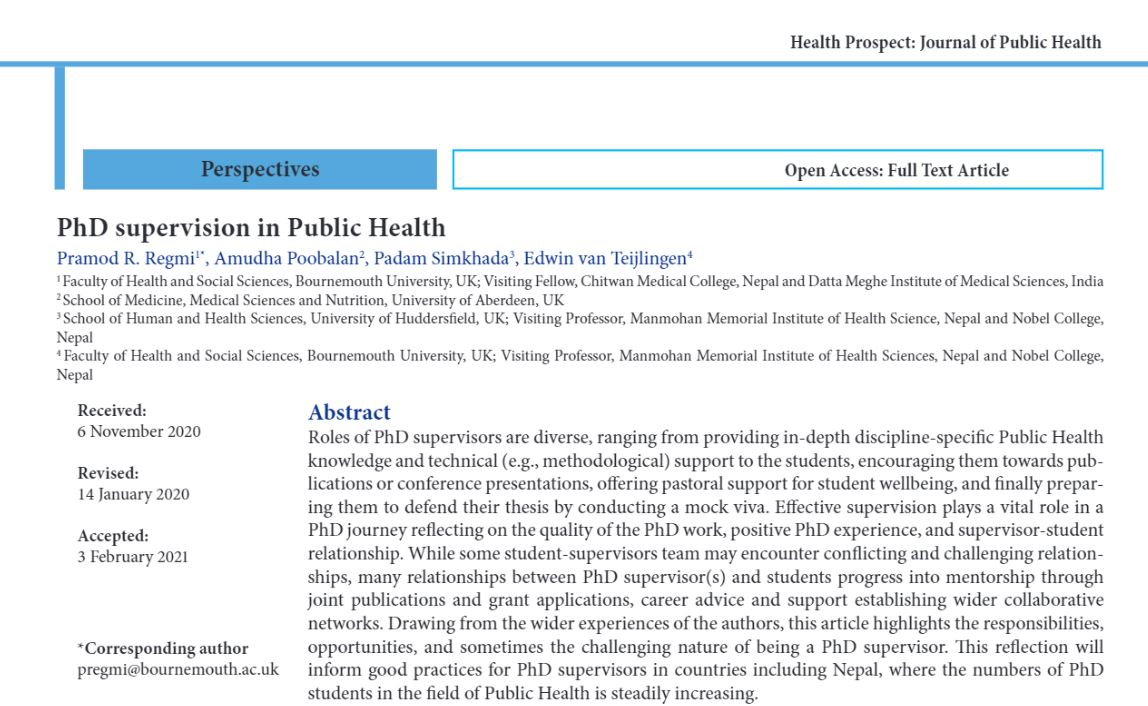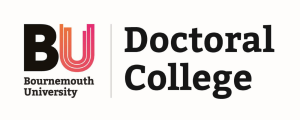Are you (relatively) new to research degree supervision?
Would you like your developing supervisory practice acknowledged at national level?
The UK Council for Graduate Education (UKCGE) now offers two levels of recognition, depending on experience. The depth of reflection required, and the standards employed in the review process, are the same for both levels of recognition.
If you are an early career researcher, a post-doctoral fellow, a technician, or a member of professional services staff, some aspects of the Good Supervisory Practice Framework (GSPF) may not apply to you.
Applying for the Recognised Associate Supervisor Award requires evidence against 5 of the 10 criteria of the Good Supervisory Practice framework, of which 3 are compulsory and 2 are elective as set out below:
| Criteria | Full | Associate |
| Recruitment and selection | ✓ | × |
| Supervisory relationships with candidates | ✓ | ✓ |
| Supervisory relationships with co-supervisors | ✓ | ✓ |
| Supporting candidates’ research projects | ✓ | Elective |
| Encouraging candidates to write and giving appropriate feedback | ✓ | Elective |
| Keeping the research on track and monitoring progress | ✓ | × |
| Supporting candidates’ personal, professional and career development | ✓ | Elective |
| Supporting candidates through completion and final examination | ✓ | × |
| Supporting candidates to disseminate their research | ✓ | Elective |
| Reflecting upon and enhancing practice | ✓ | ✓ |
| Supervision observation report | × | ✓ |
| Reference from a former doctoral candidate | ✓ | × |
| Reference from a colleague | ✓ | ✓ |
Your application for the Associate award must also include 2 supporting documents —
- 1 completed Supervision Observation Report
- and 1 reference from a colleague who can authenticate your supervisory experience
The Doctoral College is co-ordinating applications from BU and will pay the application fee on your behalf. To apply:
- Individuals to complete application form, including Supervision Observation Report and reference from a colleague who can authenticate your supervisory experience.
- Individuals to submit application to the Doctoral College (doctoralcollege@bournemouth.ac.uk) by Monday 19 June 2023, including email support from your Deputy Dean for Research & Professional Practice
- Doctoral College to submit applications to UKCGE by Friday 23 June 2023
- UKCGE to review application and feedback to individuals.
The key dates for the next application windows and review outcome dates are:
| BU Window Closes | UKCGE Window Closes | Expected Outcome |
| 19 June 2023 | 23 June 2023 | September 2023 |
Book here to attend the New Supervisory Development on Tuesday 16 May 2023 for support about the application process!
Book here to attend the Supervisory Lunchbite on Wednesday 10 May 2023 for support about the application process!
For general enquiries about the scheme, please email the Heads of the Doctoral College, Dr Fiona Knight or Dr Julia Taylor, directly.
































 New CMWH paper on maternity care
New CMWH paper on maternity care From Sustainable Research to Sustainable Research Lives: Reflections from the SPROUT Network Event
From Sustainable Research to Sustainable Research Lives: Reflections from the SPROUT Network Event REF Code of Practice consultation is open!
REF Code of Practice consultation is open! ECR Funding Open Call: Research Culture & Community Grant – Apply now
ECR Funding Open Call: Research Culture & Community Grant – Apply now ECR Funding Open Call: Research Culture & Community Grant – Application Deadline Friday 12 December
ECR Funding Open Call: Research Culture & Community Grant – Application Deadline Friday 12 December MSCA Postdoctoral Fellowships 2025 Call
MSCA Postdoctoral Fellowships 2025 Call ERC Advanced Grant 2025 Webinar
ERC Advanced Grant 2025 Webinar Update on UKRO services
Update on UKRO services European research project exploring use of ‘virtual twins’ to better manage metabolic associated fatty liver disease
European research project exploring use of ‘virtual twins’ to better manage metabolic associated fatty liver disease